My Death, Decisions, & Dithering
A Search for Consequential Actions
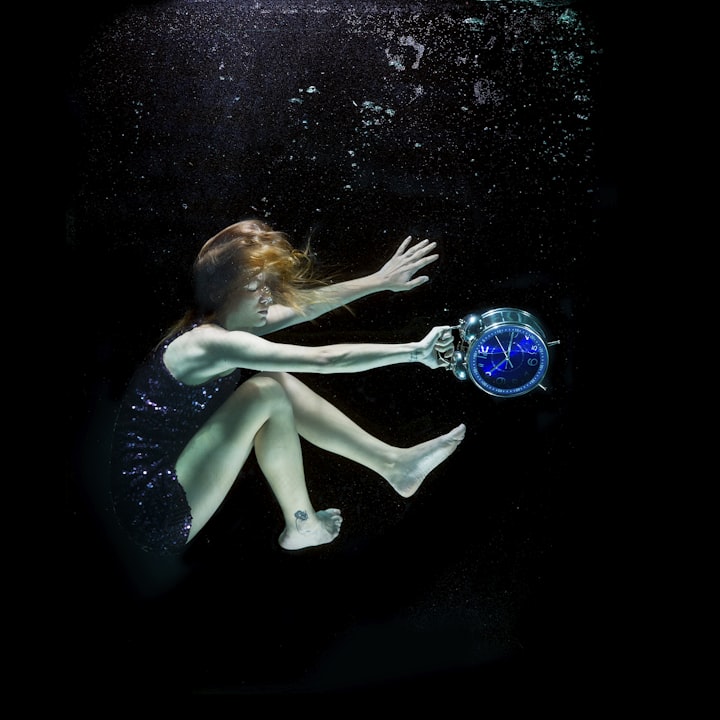
Prologue
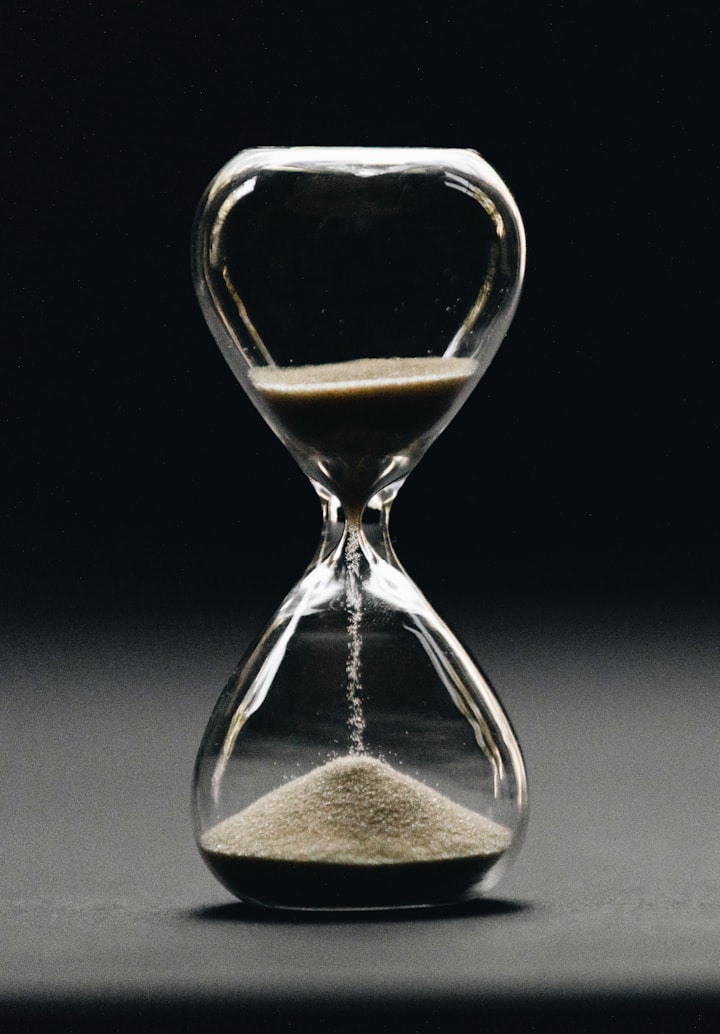
I have a warped relationship with time.
When I was 29 years old, I was diagnosed with a rare sleep disorder. The sleep specialist assured me that my chances of having it were low; in fact, I think he was more surprised by the diagnosis than I was. It’s most common in males over 65, and it's rare even then.
I researched it, and the news wasn’t good. The disorder itself is manageable and nothing to worry about, but it’s the first symptom of other serious diseases: Parkinson’s, Lewy body dementia, and multiple systems atrophy. Believe it or not, Parkinson’s would actually be the best case scenario. The other two are fatal and make everyone around you (and you) miserable.
“I wouldn’t worry about it,” my doctor told me about Parkinson’s. “You could get it in 5 years, 50 years, or never. We don’t know. Don’t worry about it.”
The reason we don’t know anything about it? The “early onset” type--which is the label for anyone under 50--is so rare that no one has any idea if it leads to those other diseases or not.
I talked to a professor who was nearly an expert on the disease and she said “Oh, you don’t want that. Can’t it be something else?” She gave me a long list of illnesses I should suggest to my doctor instead. When I told her that I’d already had a sleep study, her face and voice fell. We barely knew one another, and she was mourning me like she’d seen my future: I was going to die.
I was 33 when I started hallucinating the cat. It’s black and white and walks around the apartment like it belongs here. Normally, it’s around maybe once a week. When I’m stressed, it visits nearly every other day.
“Are you sure it’s not a real cat?” my neurologist asked. “Does your other cat respond to it?”
She’s become annoyed with my dementia-fear questions. She thinks it’s crazy that I’m worried about this at 35. Some people, she says, just hallucinate things. “I wouldn’t worry about it.”
Those are the reactions I get: “Don’t worry about it” and “You’re going to die”.
Is it possible that they’re both right?
Death and Chaos
One of my biggest pet peeves is people thinking that minor things are crises. My hypothesis is that people who think deadlines are world-shattering or small decisions are life-altering have never actually been in a life-or-death situation.
This seems like a shallow hypothesis, but so far, I haven’t been proven wrong.
War veterans, victims of violent crimes, and similar people have never wigged-out on me over a deadline, formatting issue, or something not being “quite right”. And when I’ve shared this theory with them, they’ve agreed with it.
And those of us who have danced with death have a different appreciation for what constitutes a “crisis”.
I live in a metropolitan area that is famous for its high crime rate; I worked in a neighborhood that was in the top 5% most dangerous areas in America. Overall, we trust the police less than we trust our neighbors. This is simply the reality.
Depending on the calculation, Denver, which I visited last year, has a crime index roughly 25 (or more) points lower than my city, and I felt very safe almost all the time. One early evening–the sun still illuminating the world–a car drove over a plastic bottle, making a loud noise that, to some, sounded similar to a gunshot.
People froze on the sidewalk, yelled obscenities in surprise, and widened their eyes. I, on the other hand, kept walking and talking to my friend.
They had been startled, and were a bit taken aback that I’d been so casual about it. I didn’t really know what to tell them. First, it wasn’t a real gunshot. Second, if it had been, what good would standing still in horror do? The shooter wouldn’t have been aiming at us, and if we were going to be innocent bystanders there wasn’t much we could do about it anyway.
“You know that’s not a normal reaction, right?” they’d asked me.
Yes, of course I know that. The people cursing and covering their mouths were following instinct. But those aren’t my instincts anymore.
How is it possible for me to be so hesitant about dying and simultaneously blasé about it? Why does death force me into a dichotomy?
Although the world certainly is not black-and-white, my relationship with death likely is. Que será, será.
And if that’s true, all that matters is what I do at this moment.
This one.
Here.
Now.
Death and Legacy

That is how I live my life now, and how I’ve lived most of my life regardless of the diagnosis; I want to have purposeful actions. To me, it's not about being remembered; it's about making things slightly better for the next generation. In that vein, I made a list a few years ago of the things I have done that have made the world better. Here it is:
- When I was 15, I saved a five-year-old from drowning. He has a family now.
- In my early-20s, I taught a kid with severe academic challenges how to read. She’s taken college classes.
- In my late-20s, I wrote a grant that allowed a nonprofit to provide clean water to a small community for the next 70 years.
- In my mid-30s, I wrote a grant that allowed a nonprofit to give life-saving inhalers and nebulizers to more than 90 public schools.
Sometimes, you know death is a possibility; sometimes, you don’t realize the situation you were in until it’s over. But realizing it then or later, doesn’t make the possibility of death any less real.
When I saved the kindergartner, it didn’t occur to me that I could die, too. He had swum too far into the river and was being pulled under and away by the currents.
And I was the only person who could swim.
I was a strong swimmer, especially then, but holding on to a 40-ish pound person with one arm and swimming against rushing currents with the other was not an easy feat. Thankfully, he’d only been a few yards out. He hadn’t lost consciousness; he didn’t need CPR. He was just a scared kid who was suddenly aware of how dangerous the river actually was.
Honestly, I remember running to the water, and I remember swimming back with him, but swimming to him is a blur. There was no thought process before I ran into the water. Either I dove in, or the kid died. How is that even a choice?
I didn’t need praise, gratitude, or anyone feeling they were in my debt. The day proceeded as normal, and I haven’t talked to the kid or his family in nearly 20 years. He’s alive; that’s good enough for me.
But it is the first point on my legacy list, the first time when I literally saved someone’s life.
That is the ruler against which all my other actions are judged. It would be difficult to find a higher bar.
Looking into the future, I am at a 4-way stop: education, teaching, writing, and religion.
Which of those choices would be most likely to save someone else's life?
Path 1: Death and Education
Last year, a professor suggested that I get my PhD at Harvard. Honestly, I could probably make it through the admission process, and I could spend the next demi-decade earning a doctorate in something that could help me land a world-changing job.
“You should do it,” one of my friends told me over the winter break. “Think of the money you’d make when you became employed.”
I reminded them that it’s a six-year commitment. “I’d be over 40.”
“So what?” was basically their reply.
Because to people who think they’ll live into their 80s or 90s, 42 doesn’t seem old; it’s not even a factor. One could still have a career for 25 years, making a difference and making that sweet money.
And if I do live into my 80s, then I suppose they’re right.
But it’s also possible I’ll already be very sick before I can graduate. That I won’t recognize the people who love me the most. That my kidneys and other organs will already be deteriorating. That I’ll be dead or completely miserable.
So, why bother? What good is learning at one of the best schools in the world if I’m unable to use it to help anyone?
Path 2: Death and Teaching
Now, I’m teaching full-time, and I am constantly debating whether that is impactful enough. Am I changing the course of these kids’ lives for the better? If I am, is it enough? If I’m not, is there even a point?
There’s a lot that I love about teaching. Teaching middle school and junior high students is great because they’re old enough to sit still but young enough to not think they know everything. And, in a moment in which I set aside my humility, I’m pretty good at it.
“Your class isn’t the most fun,” a student told me a few months ago. “But usually in the fun classes, you don’t learn anything, and the classes where you learn things aren’t fun. This one does both.” I laughed and thanked her. That’s an accurate assessment of how I teach.
In December, I had to cancel a private tutoring session after my flight was delayed. When I saw the kid again, she said, “Thank goodness you’re back. Mom helped me instead, but she’s not as good at it.” Amusingly, her mother had said something similar, claiming that I had more patience, or maybe that the kid had more patience with me.
Parents have told me that their kids learned more in my class than any other class they’ve taken (yet) and have described me as “firm, but kind”. One parent even said that finding me was a silver lining to the pandemic. And anytime I receive a compliment like that, I tear up.
Because those comments make my teaching sound meaningful. These kids are better off with me than without me.
But teaching wasn’t supposed to be permanent. I started teaching full-time shortly after the pandemic started. I figured I’d help the kids while they were out of regular school, but by 2021, I’d be off to a new career, or back to full-time grant writing.
But 2020 came and went, and in December 2021, parents started asking me what I was teaching in August 2022. I hate planning that far ahead, but it also sounds like job security. And job security is good. Right?
“Maybe I should just embrace it,” I tell my family. “Maybe this is what I’m doing now. Maybe it’s not temporary.”
One of the books I teach is Vincent and Theo: The Van Gogh Brothers by Deborah Heiligman. Despite its length, my students usually like it. Van Gogh believed that his art was the way he could give back to the Earth for being (briefly) alive. During the most recent semester, I asked my students what they thought of that idea. Do we owe it to the world to do good things?
Their opinions were complicated and mixed, and I tried not to push my own values onto them.
A fifth grader (who adores me more than she’d like to admit) asked me a few months ago if I thought I’d still be teaching when I’m old. Is this what I’ll be doing forever?
“I don’t know,” I told her honestly. “Anything can happen.”
The truth is: I don’t see myself still teaching when I’m a senior citizen. But I don’t see myself doing anything else, either. The entire future is simultaneously a giant clock requiring transformative actions and a murky cloud of indecision.
Path 3: Death and Writing
“I’m a freelance writer,” I said for nine years. “Mostly grants,” I’d add at the end.
You would not believe the admiration people have for grant writers. It’s like we’re gods who can speak a language no one else understands and make money rain from the sky. And when I turn on my humility to say, “Oh, it’s not really that big of a deal,” people become offended. It’s ridiculous.
Grant writing is a skill just like any other. If you want to learn, are willing to put forth the effort, and can write well technically, you can do it, too. There’s not a secret society or a necessary decoder ring.
I hadn’t planned to be a grant writer, either. It was just something to do to pay the bills while I figured out a real job.
And I did that for nearly a decade.
The adrenaline rush from getting a grant that you know will change people’s lives is exhilarating. “Why does anyone do drugs?” I quipped to a client once after receiving a grant we’d spent hours writing.
“Because not everyone can write grants,” she responded. I rolled my eyes.
But the frustration you feel when you know a nonprofit (or grantor) isn’t doing enough is a whole new level, too. If I couldn’t add a client to my legacy list, I ultimately had to let them go. Ticktock.
The entire time I was writing grants, I was also writing my novels. I tell kids now that the first novel I wrote, I spent 200 hours writing and 400 hours editing, and ultimately I didn’t use any of it. “It wasn’t good,” I tell them, and they interpret that as a failure.
But most writers will tell you that it isn’t. Writing takes practice, and my favorite part of writing is experimenting. That book was realistic fiction with a parallel story line. Since then, I’ve written linear story lines, thrillers, mysteries, horrors, short stories, novelettes, and chapter books. There are hundreds of pages in the cloud that will never be read by strangers, and that’s okay.
Part of me would love to publish something, but I don’t want the fame. And again I ask myself: Is publishing a book impactful enough? And couldn’t one argue that publishing a kid’s book would actually be more consequential than another Bildungsroman cliché?
Death and "Bojack Horseman"
Spoiler Alert: If you haven’t seen the final season of Bojack Horseman, you should skip this part.
Bojack Horseman is one of my favorite shows, and likely will remain that way. However, I haven’t re-watched it since I finished the final season. It’s just too much to take. (I’ve written about its impact on me in other articles.)
And Diane’s story line in Season 6 was basically a version of what my life is and could easily be--to the point that it made me uneasy.
Princess Caroline is telling Diane how well she writes her goofy kids’ stories, and that she could make a living doing that. Honestly, the magical realism chapter books I’ve written are significantly better than any of my adult books. Diane is reluctant; she wants to be taken seriously as an author. I have the same reluctance.
And she is successful. As a middle grade English teacher who has to hear so much about Rick Rordan, the joke in the final scene made me laugh out loud. Diane becomes successful, although not at all the way she thought.
I’ve talked to people about how Bojack is so emotionally draining. The last two times I’ve said “I’m basically Diane,” they’ve cut me off and said “Oh my god, you are Diane!” I had meant this from the author perspective, not the warped, mentally ill, tortured artist perspective, but apparently that’s the vibe I give, at least enough that multiple people immediately drew that conclusion.
Although, considering her other qualities, there are certainly worse characters to whom I could be compared. And her life seems to turn out okay, so there's that.
But for now, writing remains a side project, maybe even a coping skill, but not a career.
When secular activities don’t bring us comfort, or when we’re staring hard at our own mortality, isn’t religion the most fitting place to turn?
Path 4: Death and Religion
Several years ago, I watched a documentary about a group of Buddhist monks and nuns whom I admire, and I became irrationally upset when I discovered one of them was originally a nuclear scientist.
Ranting to a friend over a meal, I said, “Do you understand how important her skills are? How few people can do what she did? It’s selfish for her to be a nun.”
Clearly, that’s harsh. I don’t know this woman at all, and I should be happy that she’s happy. Perhaps she was completely miserable at her job and with her life. Also, my opinion should absolutely not matter to a random woman and how she chooses to live her life. Believing otherwise is egotistical arrogance to a whole new level.
I was projecting because that’s how I feel about my life.
Tich Nhat Hanh once wrote: “Practice joy”. That was the entire page of a book, and I was in love with it. When I shared it with others, they interpreted it as “choose joy”. Choose to be happy; choose to have peace.
And that’s a nice idea, but that’s not how I interpreted it.
We have to practice joy; choosing it isn’t enough. We have to practice it the way we practice an instrument or a skill. No matter how much you master those things, there will always be challenges. The more you learn, the more challenging pieces you can attempt. Even as a fantastic musician, artist, writer, scientist, or athlete, you will never be done practicing.
Some days, practicing joy requires force, like your parents making you play a squeaky clarinet for another 30 minutes.
When I’m conflicted about what I should do as a career, a friend will often say, “Do what makes you happy.”
What would make me happy is to live in a Buddhist monastery. Eat vegan food. Sleep well. Not worry about money. Take long walks. Grow food and plant trees. Live a quiet, peaceful life.
“So do that,” they tell me.
But I can’t. Me being happy is not enough of a reason to live my life a certain way. Putting tranquility and kindness into the universe is admirable, but it’s not impactful enough for me to feel like I’m living my best life.
I would rather be miserable and making a positive impact than be euphoric and “living my truth”. What does that say about me?
Death and Relationships
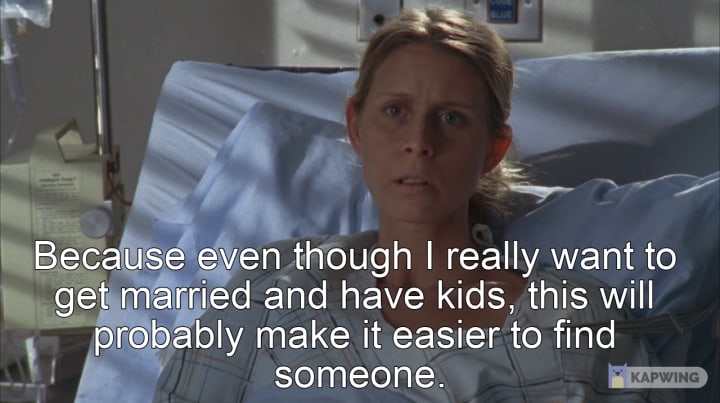
For numerous reasons, I’m single, again. If you had told me 20 years ago that I would be single in my mid-30s, there is an equal chance I would have been in complete disbelief, or I would have smirked and simply said, “Sounds right.”
In November 2020, I made a connection with a person, and very slowly started to check my feelings. It was a long-distance friendship, and I flew to meet them in-person in June. I stayed a few days, and it was fantastic.
But I knew that if I had any chance of making the friendship into something deeper, I had to be honest about the future.
Most of my friends thought saying something before the relationship had even begun was ill-conceived, ridiculous, and relationship suicide. I didn’t disagree with that assessment, but it was more important to me to be honest.

If them understanding this reality–the reality that I could be sick or die before we celebrated our 10th anniversary–would be a dealbreaker, I would rather know that now than after we’d become emotionally invested.
And while it didn’t kill the vibe, I could tell that it didn’t move us any closer to a commitment either. But I don’t regret that conversation.
Ultimately, I turned off my feelings for that person. There were other reasons that compatibility would have been an issue, and the relationship wouldn’t have survived.
But the truth is that anyone who is diagnosed with any disease–fatal or otherwise–that is going to require an energy- and time-intensive commitment is a hard sell to a brand new person.

Technically, that’s how it’s supposed to be, right? You meet someone who is (relatively) healthy, fall in love, have a (relatively) happy life, and then pay your dues toward the end when one of you becomes sick or frail. That’s what we’re told to believe.
As a species, we have decided that the life and relationship cycles should follow the same path. And when that belief is tested, cognitive dissonance is achieved, and some people are simply incapable of that type of commitment.
So, I haven’t given up on love, but I’m not holding my breath, either. And if you’re not sure you’ll ever belong in a couple, then you have to figure out where you do belong.
Death and Belonging
Last year, I told someone that it was possible I’d have dementia by 40 and dead by 50. They told me that I “shouldn’t think like that,” and I was offended.
“Don’t take this away from me,” I told them. “It’s what drives me.”
That’s part of the problem; what bothers everyone else drives me to be more decisive and to constantly think about my actions. Am I doing enough? Am I giving more than I'm taking?
Living requires resources. The ocean provides 50% of our oxygen, and we’re destroying it. We’re eating all the food, drinking all the freshwater, and polluting the air we breathe. (Let’s be honest; it’s not us. It’s the governments and corporations of developed nations. But that’s beside the point, apparently.)
Every breath I take, every glass of water I drink, and every bite of food I eat removes resources that could be going to someone else. I think about that a lot, and I struggle to understand why other people don’t.
Whether we want to be or not, we are all connected to one another. We’re past the point of isolationism being effective. The things we do affect the people who share our resources.
However, simultaneously, to think that much of ourselves is absurd. Why do we believe that we matter that much? Why do we have social media? Why do we comment on YouTube videos and strangers’ posts? Why do we feel such a need to be heard?
Bo Burnham has an answer for these questions, and it’s a good one.
“If you can live your life without an audience, you should do it.”
And yet, maybe fictional Beverly Clark had it right; maybe we simply require a witness to our lives.
So, we must find a place to belong, regardless of romantic status, in which someone will witness our actions, see what we do, and accept who we are.
But honestly, I could get that from any of the four paths. Professors, students, readers, and nuns are all different types of witnesses, but the result is the same. They would all know a version of me, and they would all remember me in their own way, at least for a bit.
But if being remembered doesn’t matter to me (and it doesn’t), then why should I not just choose a path? Any path would do.
Why can’t I just accept somewhere to belong?
Death, Decisions, and Dithering
As I said earlier, I didn’t intend to be a grant writer or a teacher. Honestly, my entire life has basically been me falling backward into new opportunities.
A friend recommended me for my first job; no interview required. I was given my second job because my boss hated the boss of my first job. I was poached for my next job, and I knew people for the two after that.
I worked some odd jobs between those, but I didn’t have to impress anyone in a job interview until I was 32. And I landed that client, too.
I’ve been picky about which colleges and universities I pursued, but I’ve never had a rejection letter from any of those, either.
That doesn’t mean that I’ve always gotten what I’ve wanted or that life has been rainbows and butterflies. Neither of those is remotely true. In fact, a lot of my life was filled with me muttering, “It shouldn’t be this hard.”
But it does mean that I have never stood at this type of crossway. If I gave myself a bit of time, life would gently propel me in one direction.
There’s no push this time. I hear the sands dropping through the hourglass’ neck, and there’s no way to know how much sand remains in the top bulb.

There's no time to dither.
So I study.
And I teach.
And I write.
And I dream.
And I hope that I’ll make a decision that helps me improve, even save, lives.
Before the sands of time take mine.
About the Creator
Alex Casey
I'm a full-time educator and part-time writer. My best ideas usually end up on Vocal.
Enjoyed the story? Support the Creator.
Subscribe for free to receive all their stories in your feed. You could also pledge your support or give them a one-off tip, letting them know you appreciate their work.

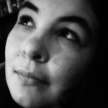



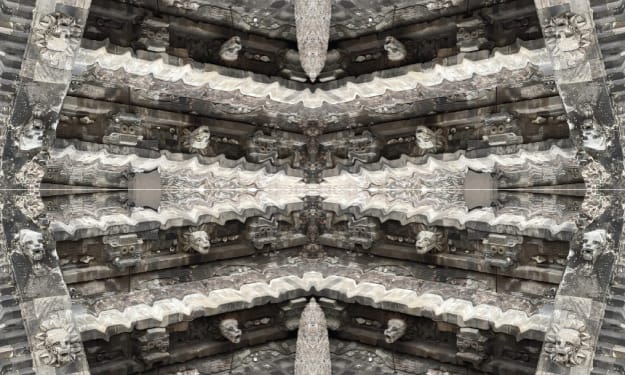
Comments
Alex Casey is not accepting comments at the moment
Want to show your support? Send them a one-off tip.